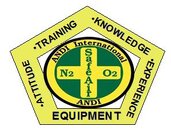billt4sf
Contributor
- Messages
- 2,561
- Reaction score
- 1,151
- # of dives
- 500 - 999
What do we need to be safe divers?
What skills, equipment, and habits do we need to be safe divers? I am assuming that we (a) dive with a buddy; (b) stay within the recreational limits; (c) do not engage in deco-required diving (d) do not enter overhead environments.
Obviously some environments are more challenging than others (cold, dark waters being more challenging than warm, tropical waters). So my proposal is that we need these skills for whichever environment we are attempting to dive in.
Are all these necessary to be a safe diver ? Are these sufficient? What if we have most of them but want to try a new environment?
Here’s my list. I personally think that the most important skill is the last two – also the hardest to learn.
Thanks to Lamont.
Skills
1) Clear mask
2) Remove and switch regs
3) Maintain buoyancy
a) near bottom
b) at safety stop – with / without line to hold or for visual reference
4) Horizontal trim as much as possible
5) Oral inflation at surface while maintaining buoyancy
6) Ability to share gas at bottom or during an ascent
7) Controlled ascent from various depths, also while sharing gas
a) using line or anchor chain
b) with line as a reference
c) no line
8) Ability to launch SMB
a) at surface
b) at depth
9) Ability to assess whether your weighting is appropriate
10) Ability to manage your gas during a dive. Ability to asses what your / your buddy’s gas usage would be before the dive.
11) Remove and replace all hose connections underwater
12) Doff and don rig underwater and at surface
13) Ability to assess if we or a buddy are impaired due to depth (nitrogen narcosis) or other reason
14) Navigation skills commensurate to the environment we plan to dive
15) Ability to assess situation to determine if it’s safe for us to dive with the skill set we possess at the time of our dive
a) gas usage
b) expected depth
c) visibility
d) current
e) boat lines
16) Ability to know when to thumb the dive
Equipment
1) A light appropriate for the environment
2) An SMB
3) Whistle, mirror
4) Air alert
5) Buddy communication (wet notes, slate)
6) Computer
7) Compass
Habits
1) Stay within a few feet of your buddy
2) Good buddy checks: tug all hoses, air on?, tank straps OK?
3) Horizontal trim
4) Don’t disturb underwater environment
5) Continually check the compass or other underwater bearings
6) Breathe a few breaths from each reg shortly after entering the water
7) Breathe a few breaths from the primary while looking at the SPG to ensure air is on
What skills, equipment, and habits do we need to be safe divers? I am assuming that we (a) dive with a buddy; (b) stay within the recreational limits; (c) do not engage in deco-required diving (d) do not enter overhead environments.
Obviously some environments are more challenging than others (cold, dark waters being more challenging than warm, tropical waters). So my proposal is that we need these skills for whichever environment we are attempting to dive in.
Are all these necessary to be a safe diver ? Are these sufficient? What if we have most of them but want to try a new environment?
Here’s my list. I personally think that the most important skill is the last two – also the hardest to learn.
Thanks to Lamont.
Skills
1) Clear mask
2) Remove and switch regs
3) Maintain buoyancy
a) near bottom
b) at safety stop – with / without line to hold or for visual reference
4) Horizontal trim as much as possible
5) Oral inflation at surface while maintaining buoyancy
6) Ability to share gas at bottom or during an ascent
7) Controlled ascent from various depths, also while sharing gas
a) using line or anchor chain
b) with line as a reference
c) no line
8) Ability to launch SMB
a) at surface
b) at depth
9) Ability to assess whether your weighting is appropriate
10) Ability to manage your gas during a dive. Ability to asses what your / your buddy’s gas usage would be before the dive.
11) Remove and replace all hose connections underwater
12) Doff and don rig underwater and at surface
13) Ability to assess if we or a buddy are impaired due to depth (nitrogen narcosis) or other reason
14) Navigation skills commensurate to the environment we plan to dive
15) Ability to assess situation to determine if it’s safe for us to dive with the skill set we possess at the time of our dive
a) gas usage
b) expected depth
c) visibility
d) current
e) boat lines
16) Ability to know when to thumb the dive
Equipment
1) A light appropriate for the environment
2) An SMB
3) Whistle, mirror
4) Air alert
5) Buddy communication (wet notes, slate)
6) Computer
7) Compass
Habits
1) Stay within a few feet of your buddy
2) Good buddy checks: tug all hoses, air on?, tank straps OK?
3) Horizontal trim
4) Don’t disturb underwater environment
5) Continually check the compass or other underwater bearings
6) Breathe a few breaths from each reg shortly after entering the water
7) Breathe a few breaths from the primary while looking at the SPG to ensure air is on





